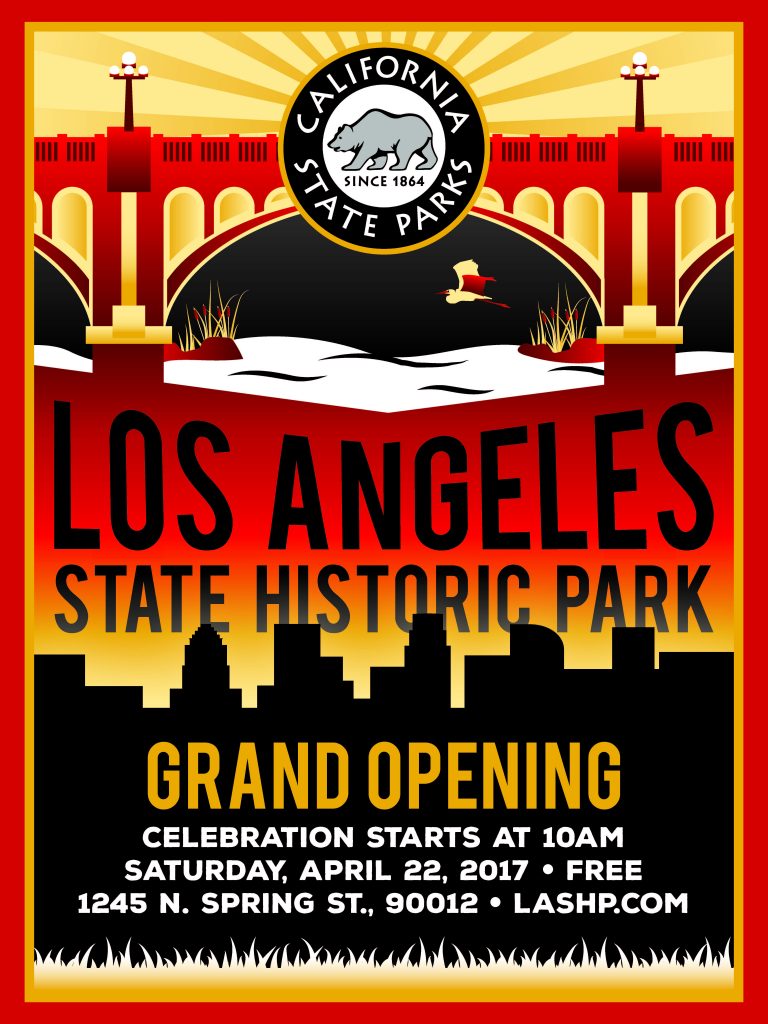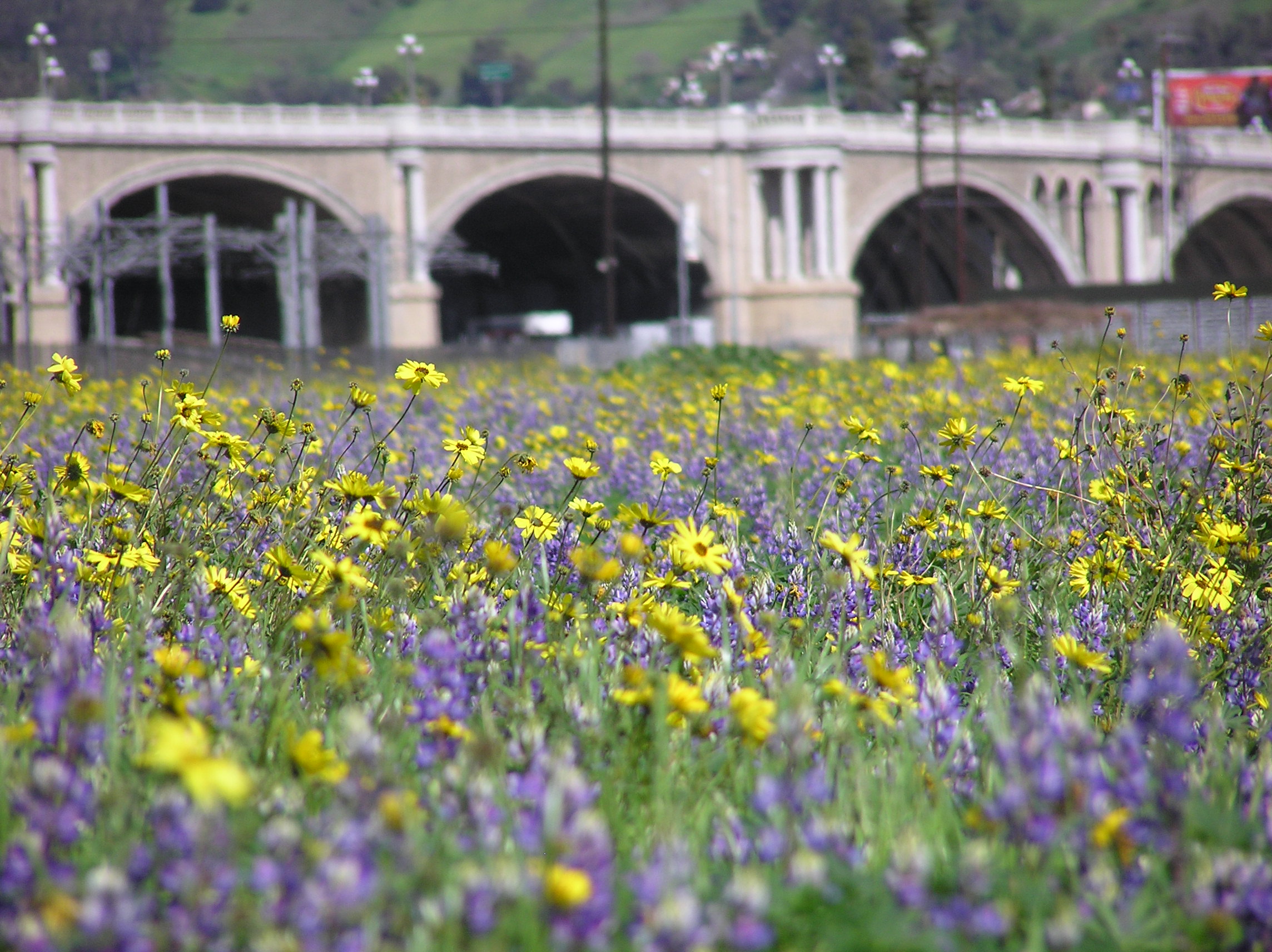“A once in a lifetime opportunity.”
– Governor Gray Davis, 2001

Los Angeles State Historic Park (LASHP), often referred to as “Central Park of Los Angeles,” is one of the Department’s most high-profile, politically-charged and highly anticipated park projects in the State. Calling it a “once in a lifetime opportunity,” Governor Gray Davis signed California Senate Bill 1177 on Sept. 28 2001, authorizing the California Department of Parks and Recreation to “acquire, assess, clean up, plan, design, build and maintain” the 34-acre parcel. The purchase of the site marked one of the most significant environmental justice victories in Los Angeles and a testament to the power of grassroots activism.
Los Angeles State Historic Park is considered the leading-edge of California State Parks’ efforts to bring the State Parks Mission to some of the most underserved, park-poor communities in the heart of the nation’s second largest city in the United States. Since acquiring the land in 2001, State Parks engaged the local community in an extensive series of 65+ public meetings and planning workshops during which they shared their visions for the park’s future. The State worked hand in hand with surrounding communities to develop Los Angeles State Historic Park as a space for civic dialogue, cultural celebration and historic remembrance.
On April 22, 2017, California State Parks hosted the grand opening celebration for Los Angeles State Historic Park. The grand opening featured an official ribbon-cutting and speeches from Governor Jerry Brown, Speaker of the Assembly Anthony Rendon, Assembly member Jimmy Gomez, California Secretary for Natural Resources John Laird, Los Angeles Mayor Eric Garcetti, and members of the community among many more.
The Los Angeles State Historic Park project is also reflective of California State Parks’ Transformation Effort. Through this effort, the department has strengthened itself through a myriad of initiatives and projects to improve visitors’ experiences and make the system more relevant to broader and more diverse populations.

